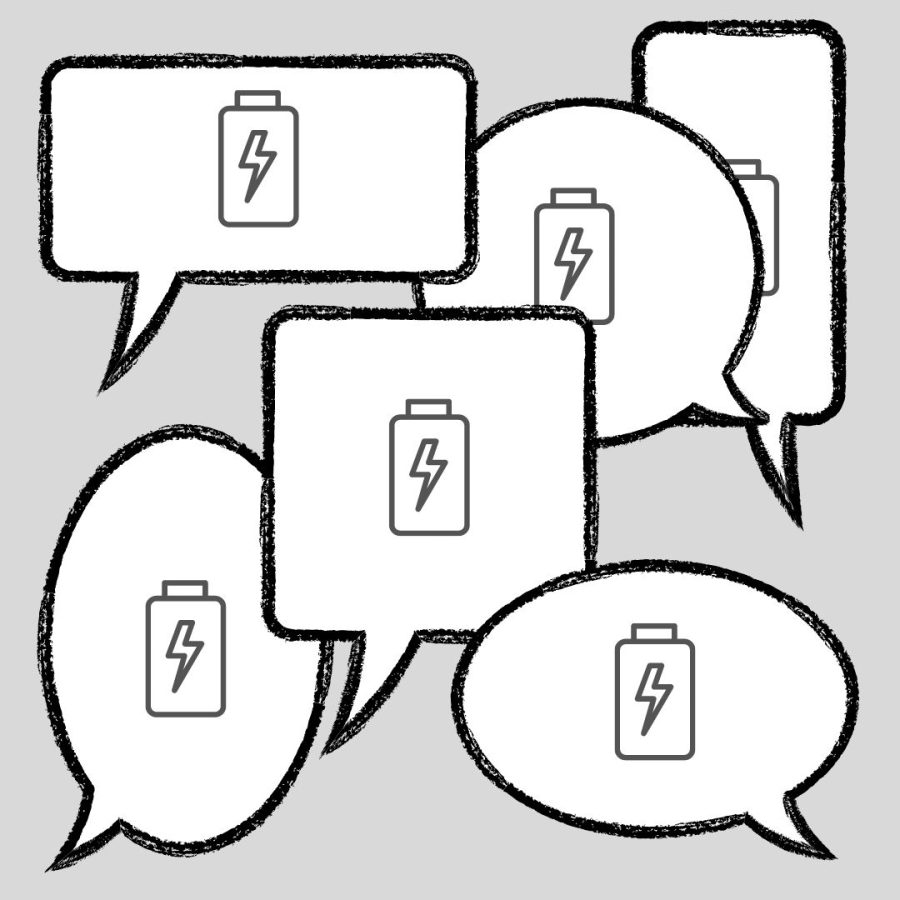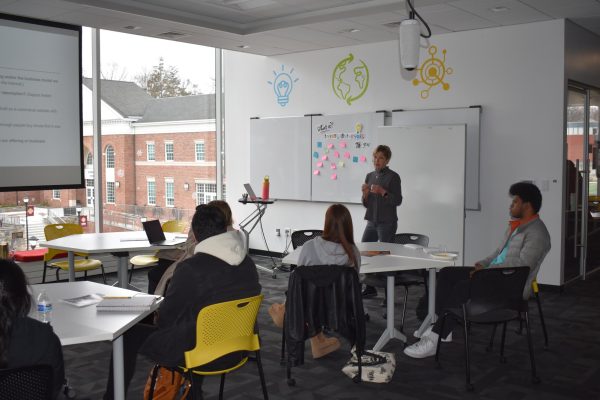The declining health of social batteries
How long are you able to stay engaged in a conversation before it becomes unbearable?
October 22, 2022
Conversations that last longer than 10 minutes are starting to feel like an extinct species. These days, meaningful conversations seem to last about 4 minutes before full sentences transition into long “ummmm’s” accompanied by blank stares or before someone picks up their phone. Are people running out of things to say, or are their social batteries dying faster?
A person’s social battery refers to the amount of energy had for interacting in a social setting. Social batteries are an evaluation of a person’s attention span and their ability to engage in conversation. Studies have shown that in recent years people’s social batteries have become short-lasting—meaning people find conversations tiring and stressful after a short amount of time spent socializing. You may even see these same patterns within yourself.
The decrease in people’s social batteries can be attributed to several factors, some of which pertain to mental health factors like anxiety. However, with the rise of social media and quick entertainment in recent years, people’s attention spans are depleting, and this depletion proposes the weakening of effective communication. People may ask why any of his matters?
A weakening in effective communication is a threat to all, especially younger generations. Many people can agree on the vitalness of communication and socializing, even in the vastly growing digital world. Knowing how to talk to someone or hold a conversation for more than 15 minutes is seen as important. Normalizing short-lasting social batteries is contributing to the growing epidemic of social anxiety across America—it is also negatively affecting the education of younger generations.
The lack of socialization and face-to-face conversations during the pandemic hindered students’ learning. According to NPR.org, “Even students who spent the least amount of time learning remotely during the 2020-21 school year — just a month or less — missed the equivalent of seven to 10 weeks of math learning.”
You do not need to be a rocket scientist to notice the declining health of people’s social batteries. People would much rather watch a Netflix show or scroll through Tik Tok than engage in conversation. The COVID-19 pandemic has certainly contributed to the increase in short-lasting social batteries.
Although this is discouraging, do not lose hope. The pandemic has stressed the importance of effective communication in several environments. There is certainly a demand for socialization as the world begins to recline back into its post-COVID state, but people’s social batteries are still feeling the effects of quarantine and social distancing in their education, work or personal life. In other words, people still want to be able to communicate, but maybe they just forgot how to do so effectively. Coming out of the pandemic, people’s social batteries will need lots of recharging and exercising.
Social batteries limit the time people spend communicating and socializing. So much knowledge, power and happiness can be obtained during the simple act of communicating effectively. Resting to recharge and working to elongate your conversations is the first step to helping your social battery’s health.














